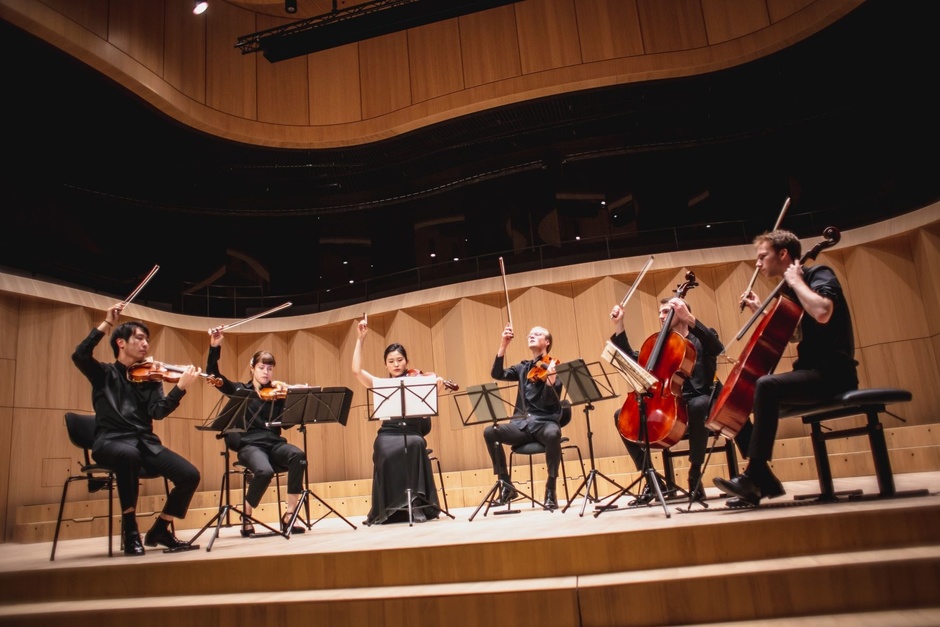Impressions of the 73rd annual conference
11 - 12 October, Bremen
Two days full of art and culture, inspiring discussions and new perspectives - on 11 and 12 October, we hosted the 73rd annual conference in Bremen. Our annual conferences have always been a format for presenting outstanding positions from the fields of architecture, fine arts, literature and music across all disciplines and encouraging intensive discourse.
On Friday evening, we opened the weekend with the exhibition opening of our ars viva prizewinners Wisrah C. V. da R. Celestino, Vincent Scheers and Helena Uambembe at the Kunsthalle Bremen. The next morning, a reading from the novel ‘Gewässer im Ziplock’ by our literature prize winner Dana Vowinckel took us to the Glocke Bremen, which was followed by a panel discussion with Svenja Flaßpöhler and Wolfang Ullrich on social structures and the role of art and culture in this context.
The prizewinners in architecture then presented their designs for a new landmark in the ‘Lok-Viertel Osnabrück’ in the ballroom of the Bremen Parliament. In conversation with architect Kilian Kresing, they discussed how a future-oriented neighbourhood can be designed, what new aspects need to be considered and what challenges architecture faces in an increasingly crisis-ridden world.
A special highlight on Saturday evening: the final concert of the four finalists of our newly organised music prize at the Glocke Bremen, accompanied by the Ensemble Resonanz under Bas Wiegers. Immediately after the concert, the jury met to select this year's music prize winner: the Georgian pianist Giorgi Gigashvili, who impressed the jury and the audience with his extraordinary stage presence and musical talent. Together with around 150 guests, the annual conference came to a close in the historic Upper Hall of Bremen Town Hall, a UNESCO World Heritage Site.
Our thanks go to Peppermint Holding GmbH for their generous support of the annual conference this year. We would also like to thank our members, supporting partners and sponsors, without whom our work would not be possible.
(c) Carolin Weinkopf und Tobias Bärmann
































































































































